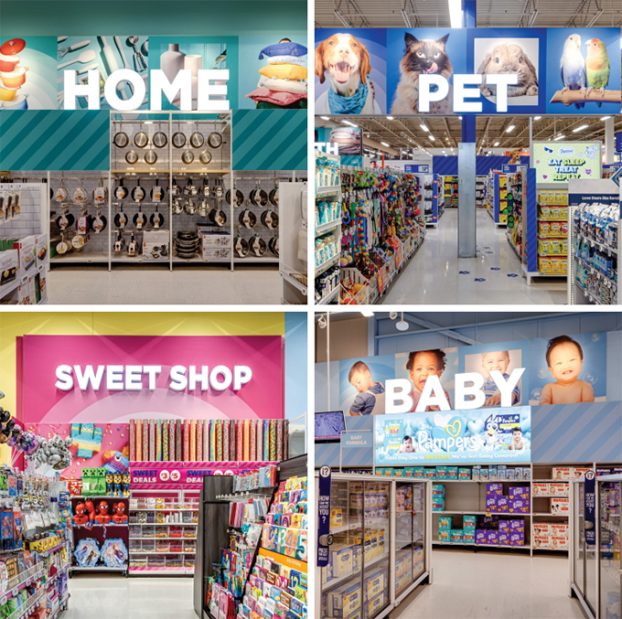Enormous windows stretch right around each soundproof suite in the Soho Metropolitan, permitting the sunlight to pour in. The whole atmosphere is conducive to comfort, from the heated floors, luxury soaps and Frette linen in the marble bathroom, to the natural down duvet in the bedroom.
Consumers who can fork over $375 for a night’s stay at the hotel, located at Wellington Street and Blue Jays Way in Toronto, can also dine on venison loin and barbecue eel terrine in the Senses restaurant, which is connected to the modern, sparsely furnished front lobby.
This luxury boutique hotel is one of many to arrive on the Canadian scene in the last year, as hoteliers respond to consumer demand for unique, tailored experiences. In fact, even larger chains, such as Silver Spring, Md.-based Choice Hotels and White Plains, N.Y.-based Starwood Hotels & Resorts are jumping in with their own boutique concepts, after witnessing the success of many independents. The key to marketing these properties is to focus on personalized service, as well as to highlight lifestyle, design and comfort in communications.
In the U.S., where the boutique hotel industry is more advanced, the number of such properties – in general they tend to have fewer than 250 rooms and are located in urban centres – has increased from virtually nil in 1980 to 150 in 2000.
Here in Canada, boutique hotels are popping up in major cities across the country: in Toronto, along with the Soho Metropolitan, the 122-room upscale Hotel Le Germain opened in the city’s entertainment district; in Montreal, the Starwood’s 152-room W hotel will make its Canadian debut this fall, joining four others that opened in the city’s historic district in 2002, as well as Le Meridien Versailles; and in Vancouver, the Opus hotel was unveiled a year ago.
Brenda Fields, a hotel industry consultant and president of New York-based Fields and Company, says these entrepreneurs have simply given travellers what they want. ‘The public was ready for a change – the typical hotel used to be a large venue with a restaurant that wasn’t a destination: [It provided] a very standard guest experience.’
In the past, however, travellers were drawn to these chains – those with names like Holiday Inn, Best Western and Westin – because they were comforted knowing exactly what they would get no matter where they were. Times have changed and some consumers now want more out of their hotel stay, says Daniel Craig, director of sales and marketing at Opus, which is situated in Vancouver’s yuppie Yaletown neighbourhood. ‘People are bored with the generic hotel,’ he says. ‘Years ago, Holiday Inn’s slogan was ‘the best surprise is no surprise.’ Travellers no longer want the same product in every city, they want a hotel that reflects the city.’
Thus, instead of the drab, windowless atmosphere guests may confront in a large chain, Opus offers them stylish rooms with large windows and punches of colour, as well as a ‘vibrant bar that also attracts locals so that they can mingle.’
In fact, there are five different décor schemes on the premises, each one representing a fictitious personality that is ‘lifestyle inspired.’
‘We have five characters that acted as muses for our interior designers,’ explains Craig, who adds that Opus cast five actors to play the five ‘muses’ in a photo shoot to produce postcards. The personalities include Didi, a method actor from Malibu, and Becca who hooks up with hottie Billy while at the hotel. The postcards were sent to media and garnered attention in the likes of the New York Times and Food & Wine magazine.
The boutique hotel’s visitors tend to work in the entertainment and film industries, according to Craig. ‘Opus guests are younger execs who don’t want to be in a conservative hotel, with brass in the lobby, polyester uniforms and Vivaldi playing.’
Opus has a three-pronged marketing approach to reach them: its PR campaign; personal sales – targeting firms in the entertainment business directly; and an Internet component.
It leans heavily on its Web site, designed by Vancouver shop Blast Radius, as a showcase; in fact, browsers can take virtual tours. Craig says 10% of bookings are garnered through the site. So far, through its marketing tactics, the boutique property has built a database of 5,000 names from scratch and, despite a lacklustre economy, the hotel had 90% occupancy rates in August.
Toronto-based Metropolitan Hotels, which has three locations (two in Toronto and a larger non-boutique property in Vancouver), can only hope its new 88-room Soho venue will lure such a high number of business and weekend leisure travellers.
Like other boutique hotels, Soho prides itself on personal service and uses its database – so far it has accumulated 2,000 names – to ensure visitors experience that personal touch. For instance, employees will record the brand of wine a certain guest prefers to ‘allow for personalized messages’ on repeat visits.
Metropolitan also uses external communication touchpoints to ‘build the reputation of the brand,’ says Janice Maguire, corporate director of marketing for Metropolitan Hotels. The Soho is advertised in business and leisure magazines, as well as newspaper inserts, with creative that spotlights its design attributes, through ‘simple, clean design and very key messages.’ For instance, to help launch Soho, an insert, created in-house, was distributed in the Globe and Mail, touting the hotel as ‘the debut of true luxury’ and offering potential guests a special deal – a one-night stay for $235.
The owners of Le Germain, which opened its first boutique hotel in Montreal four years ago, also entered the Toronto scene with a new location this past spring. ‘Le Germain is for 25- to 60-year-olds who love to be trendy, who want to feel comfortable and enjoy a design environment,’ says marketing director Marie-Claude Lavoie, adding that 60% of the clientele tends to be corporate. Like Soho, Le Germain ‘likes to treat its guests.’ For instance, adds Lavoie, ‘those that spend more than 150 nights a year in our hotel will get one of our bathrobes as a gift. It will be in their room with a card saying: ‘Feel at home when you stay with us.”
For the Toronto launch, Le Germain also relied on print and outdoor advertising, and distributed postcards in restaurants to flag the opening. Created by Montreal-based agency Paprika, the message of the campaign, was ‘nights are too short;’ meaning, you might as well enjoy them in a special place.
Le Germain has also benefited from some great publicity; in 2000, the Montreal location was voted one of the 21 coolest places in the world by Condé Nast Traveler.
Perhaps to garner some of their own buzz, large hotel chains want a piece of the action. London, U.K.-based Le Meridien Hotels & Resorts, for instance, which has 140 properties around the world, acquired the licence for the 14-year-old Château Versailles in Montreal last November. New York-based Hampshire Hotels & Resorts Group will actually continue to own and manage the hotel, while Le Meridien will oversee its global sales, marketing and support efforts.
‘The hotel fits into Le Meridien’s portfolio – they are looking at smaller properties because of the boutique trend,’ says Brenda Rodricks, GM of Le Meridien Versailles.
One advantage of pairing up with an already-established property is that it enables Le Meridien to retain the hotel’s local flavour. Each suite in the boutique hotel is filled with ‘comforts’ created by Montreal designer Stephanie Kouri. ‘Eighty per cent of what you see in the hotel is created by Quebecers,’ says Rodricks. ‘The mandate was to make the hotel very much like a Montreal residence.’
To reach consumers in Toronto and Quebec, who make up 60% of its clientele, Le Meridien Versailles relies on direct mail sent to meeting planners, as well as radio and newspaper advertising. But this hotel is also fortunate to have the advertising support of the larger Le Meridien chain, which enables it to communicate with consumers even during tough economic times, says Monica Orr, director of marketing for Le Meridien Versailles.
‘We’re trying to make the point to Canadians that we want to take care of them in style. For fall, we’re focusing on Torontonians and Montrealers and the message will be that we have an interesting corporate product and competitive prices.’
Certainly, in a down economy, the larger chains have an edge, because ‘they can take advantage of the economies of scale, and market 10 hotels instead of one, for the same amount of money,’ points out Fields.
She adds that some of the chains, like Choice Hotels, which recently announced a new venture to launch boutique properties under the Clarion Collection banner, will be able to offer an affordable, boutique-like experience to a middle-class consumer.
According to Clarion, the Collection is a brand extension and will accommodate unique, historic, or boutique hotels that enjoy ‘strong local identities’ but would benefit from the US$50-million marketing programs offered by ‘one of the world’s largest lodging franchisors.’























